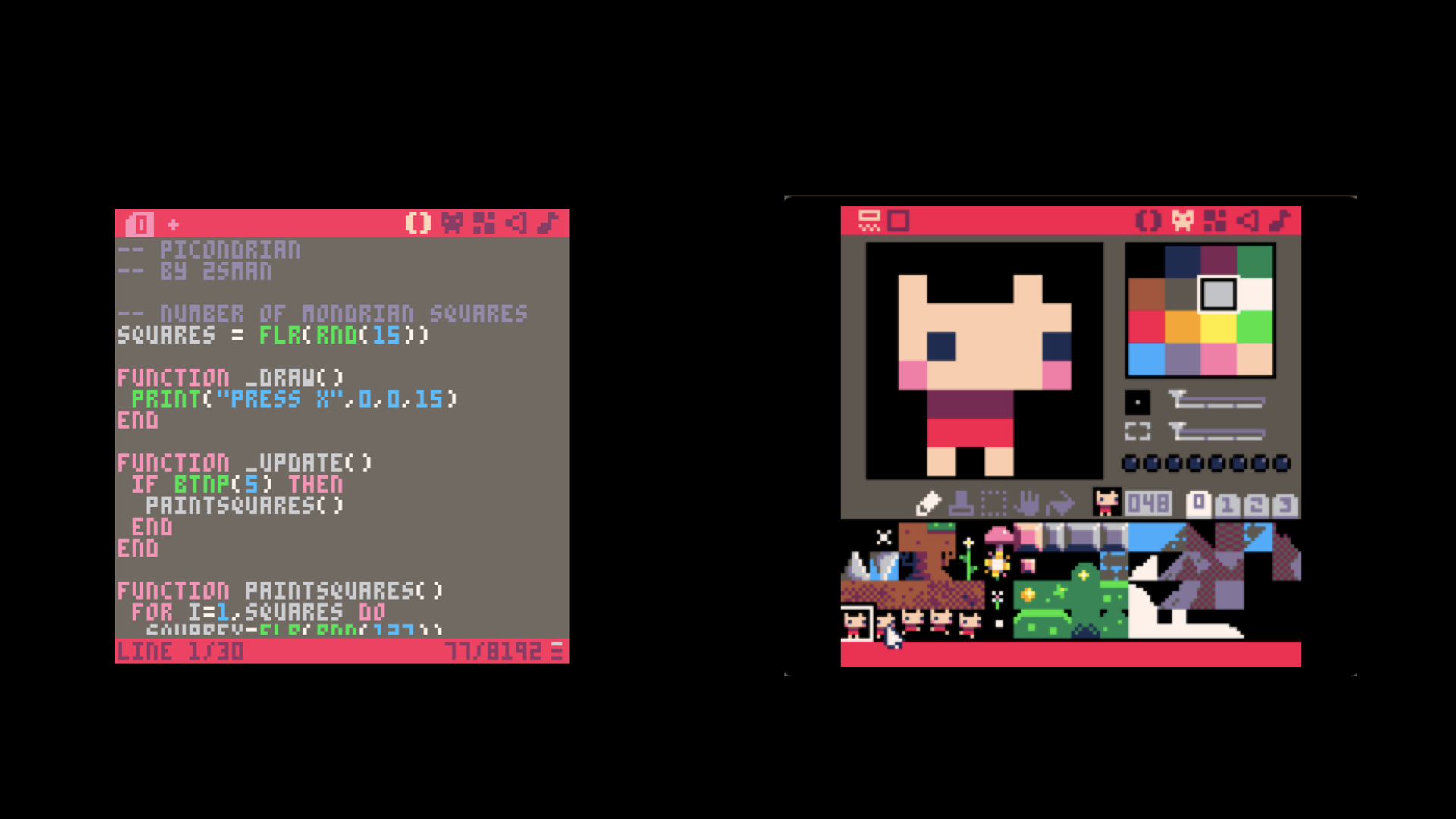- Simplified, adapted from Pico8 about txt file

Comments
-- use two hyphens like this to ignore everything until the end of the line
--[[ multi-line
comments ]]
Types and assignment
Types in Lua are numbers, strings, booleans and tables;
NUM = 12/100
S = "THIS IS A STRING"
B = FALSE
T = {1,2,3}
Conditionals
IF NOT B THEN
PRINT("B IS FALSE")
ELSE
PRINT("B IS NOT FALSE")
END
-- with ELSE-IF
IF X==0 THEN
PRINT("X IS 0")
ELSEIF X < 0 THEN
PRINT("X IS NEGATIVE")
ELSE
PRINT("IF NONE OF THE ABOVE")
END
IF (4 == 4) THEN PRINT("EQUAL") END
IF (4 != 3) THEN PRINT("NOT EQUAL") END -- note that != can also can be written as ~=
LOOPS
- starts with 1, NOT 0
FOR X=1,5 DO
PRINT(X)
END
FOR X=1,10,3 DO PRINT(X) END -- 1,4,7,10
FUNCTIONS
Y=0
FUNCTION PLUSONE(X)
LOCAL Y = X+1
RETURN Y
END
PRINT(PLUSONE(2)) -- 3
PRINT(Y) -- 0
TABLES
- In Lua, tables are a collection of key-value pairs where the key and value types can both be mixed. They can be used as arrays by indexing them with integers.
A={} -- create an empty table
A[1] = "BLAH"
A[2] = 42
A["FOO"] = {1,2,3}
-- Arrays use 1-based indexing by default
A = {11,12,13,14}
PRINT(A[2]) -- 12
-- size of a table indexed with sequential 1-based integers
PRINT(#A) -- 4
-- Indexes that are strings can be written using dot notation
PLAYER = {}
PLAYER.X = 2 -- equivalent to PLAYER["X"]
PLAYER.Y = 3
GENERAL PICO8 CARTRIDGE NOTES
- To generate a preview image saved with the cart, run the program first and press F7 to grab whatever is on the screen.
- The first two lines of the program starting with ‘–’ are also drawn to the cart’s label. e.g.
-- OCEAN DIVER LEGENDS
-- BY LOOPY
Additional PICO8 Commandline notes
folder - open the carts folder in host operating system
ls - same as Bash
run - run from start of program. call inside a program to reset it.
reboot - useful for starting new project
printh str [filename] - print a string to host operating system's console for debugging
Program Structure
- _update() - called once per 30fps
- _draw() - called once per frame (loops) - normally 30fps
- _init() - called once on program startup